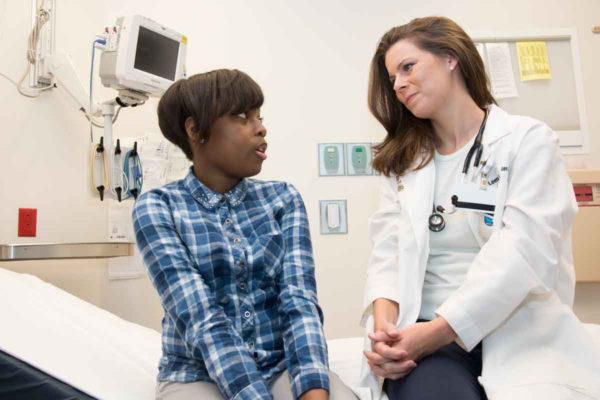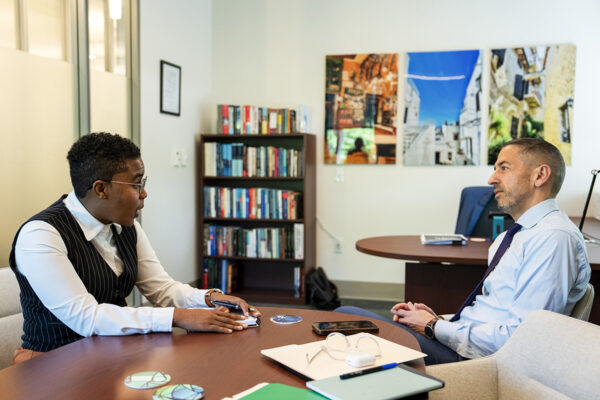WashU Medicine and St. Louis Children’s Hospital are the first in the region — and among only a few academic centers in the U.S. — to begin offering a newly approved gene therapy to cure sickle cell disease. Martin Mwita Jr. (right) traveled with his mother from their home in Nebraska to St. Louis to receive the innovative treatment. (Video: Huy Mach/WashU Medicine)
Martin Mwita Jr.’s symptoms started when he was just an infant, with painful swelling of his hands and feet, often one of the first manifestations of sickle cell disease. By the time he was a year old, he had been hospitalized multiple times due to the illness. At just 19 months, he suffered strokes and serious blood-vessel blockages in his lungs, resulting in severe complications that left him in a coma.
“We thought we had lost him,” recalled Mwita’s mom, Jacinta Mwita, of her then-toddler son. “But after three weeks in a coma, his eyes opened. It was a miracle!”
Martin Mwita, who just turned 21, was born with sickle cell disease, a life-threatening condition that makes his red blood cells sticky and prone to clumping, blocking blood flow and oxygen from reaching his muscles and organs. Oxygen deprivation leads to severe pain episodes known as crises, as well as strokes and organ damage. Monthly blood transfusions temporarily ease symptoms by introducing healthy red blood cells but can lead to complications including infections.
Mwita was diagnosed at just a few days old, and doctors said he likely wouldn’t live past age 35 because so few of his red blood cells were normally shaped and able to carry oxygen throughout his body. As a child, everyday activities such as running or riding a bike could trigger sudden, severe pain, resulting in frequent hospitalizations that, over the years, became too numerous to count. Being exposed to summertime heat waves or the chills of winter weather also could lead to pain crises. Mwita — born with an innate musical gift — still remembers breaking down crying when he couldn’t join the high school marching band, a physically demanding activity often performed on hot days. The risk of medical complications and pain episodes from dehydration was too great.
Now, Mwita has received a chance for a cure and the opportunity to live without the excruciating pain that has dominated his young life.
He recently became the first patient in the St. Louis region to receive a gene therapy newly approved by the Food and Drug Administration (FDA) for sickle cell disease. Washington University School of Medicine in St. Louis and St. Louis Children’s Hospital are among only a few academic medical centers in the U.S. that have begun offering the treatment. Shalini Shenoy, MD, a professor of pediatrics at WashU Medicine and a renowned pediatric hematologist and oncologist of Siteman Kids at St. Louis Children’s, led the orchestration of the intensive treatment.
“We could not have imagined curing sickle cell disease with gene therapy even 10 years ago, when we were doing stem cell transplants with cells obtained from suitable donors to cure patients,” said Shenoy, who treats patients with blood disorders. “It’s a huge step forward to be able to take a patient’s own blood-making stem cells and genetically modify them before putting them back into the body in such a way that allows healthy red blood cells to be produced. For Mwita, the treatment means a life outside of the hospital, free of worry about the next pain crisis interfering with school, hobbies and his future aspirations.”
Read the full story on the WashU Medicine website.


